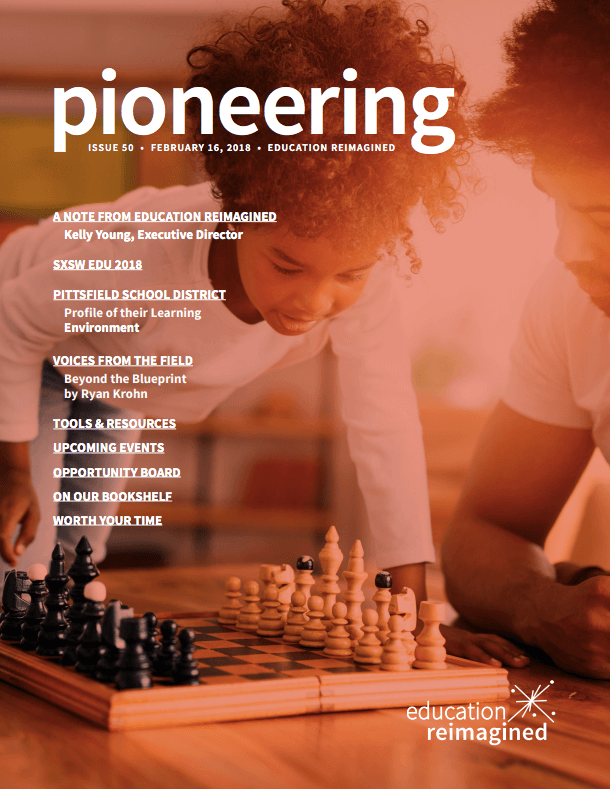Issue 50
February 16, 2018
Timothy Ferriss
Most people are fast to stop you before you get started but hesitate to get in the way if you're moving.
In This Issue
Dear Pioneers,
I have had a particularly challenging week explaining what Education Reimagined means when we say “learner-centered education.” This challenge is always present for learner-centered pioneers. Someone requests a short explanation of our work, we give our best attempt at an elevator pitch, and the listener immediately seeks to fit our message within examples of school-centered “innovation.” Given the haste of the conversation, we find ourselves simply responding with, “that’s kind of right,” and we walk away feeling defeated. However, we must continue practicing new ways to communicate our message. If we bow out, the following stories will persist.
A colleague of mine at Convergence recently shared a simple story of her Kindergarten-aged daughter. She is strong at math, but her fine motor skills are still developing. So, when she was required to complete a timed sheet of 100 math problems, she fell short of the expected standards. If she had been asked to do flash cards, the teachers would have seen that she had her single digit math down pat.
Closer to home, my son has been visibly frustrated with school. He struggles to find the words, but I gather he is struggling with the system’s inflexibility. His school recently adopted new technology meant to support competency-based learning. When I asked if it’s allowed him to move at his own pace, he cried. He’s assigned units and rushed through them. One day, he was told to complete two units in one hour. He asked to flip the order in which he was expected to do the units because it made more sense to him that way. He was told “no.” These little things are sapping his motivation and self-efficacy.
When we say “learner-centered education,” we mean it is all about listening to learners, valuing their perspectives, and co-designing learning that is engaging and allows them the dignity of choosing the path of learning that works for them. Tucker may not be so sad if he didn’t know there is another way of learning. But, he does know, and as more young people have friends (or parents) involved in learner-centered education, they will also develop an understanding of what it means to be treated as an individual. And, they won’t tolerate the slow erosion of their self-worth.
No matter our current frustrations, we must allow them to fuel our passion for this work. In our latest issue of Pioneering, we feature pioneers who are channeling their passions in their communities. Check out their inspiring work.
Enjoy!
Kelly Young

